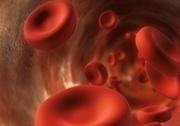Beating hepatitis C
Up to 70 percent of hepatitis C patients could be cured if they seek early treatment, an international study coordinated by UNSW researchers has found.
Up to 70 percent of hepatitis C patients could be cured if they seek early treatment, an international study coordinated by UNSW researchers has found.

Up to 70 per cent of hepatitis C patients could be cured if they seek early treatment, an international study coordinated by UNSW researchers has found.
The study by UNSW's National Centre for HIV Epidemiology and Clinical Research (NCHECR) also found that a standard combination drug treatment was as effective as a stronger regimen of therapy that is associated with serious side effects.
Advocacy group Hepatitis Australia estimates that more than 300,000 Australians are infected with chronic hepatitis C, yet fewer than two percent receive treatment. A blood borne virus, the most common routes of infection in Australia include through infected blood and contact with contaminated needles.
The findings were part of the CHARIOT study - a randomised control trial involving 702 patients from Australia, and 194 from New Zealand, Canada, Thailand, Argentina and Mexico. All had hepatitis C genotype 1- the most difficult to treat.
Senior author of a paper to appear in the journal Hepatology, Professor Greg Dore from NCHECR, said early treatment was vital to prevent the onset of serious liver conditions. Hepatitis C is the principal reason for liver transplants in Australia.
The study was a collaboration between NCHECR, drug company Roche and the Australian Liver Association.
Contact: Steve Offner | 9385 8107 | s.offner@unsw.edu.au